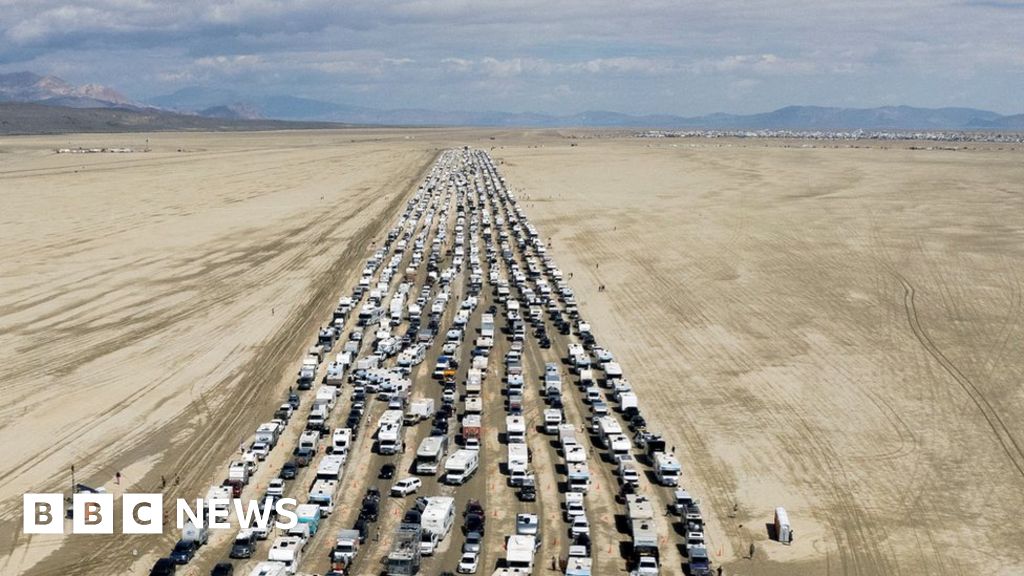
www.bbc.com
Burning Man exodus begins as boggy conditions improve
Revellers are able to leave the desert festival after heavy rain turned the site into a mud bath.
Local
Organisers have given the go-ahead for large numbers of revellers to leave the Burning Man festival in Nevada after wet conditions eased.
They said people could begin leaving the desert site at noon (19:00 GMT) but suggested delaying until Tuesday to prevent congestion.
Heavy rain had created a mud bath. Of some 72,000 people stranded, 62,000 were still there at noon.
Organisers also said a man's death on Friday was unrelated to the weather.
Emergency services were called to help the man, said to be about 40 years old, but he could not be resuscitated, they said. The local sheriff's office announced earlier it was investigating.
The event's traditional finale - the burning of an effigy - was postponed to Monday evening.
A driving ban at the site was lifted on Monday afternoon. "Please know that while conditions are improving and roads are drying, the playa is still muddy and may be difficult to navigate in some neighborhoods and down certain streets," organisers said.
The rainstorm that hit the Black Rock Desert near the end of last week is thought to have been the longest, heaviest rainfall since the festival began more than 30 years ago.
Martyna Sowa, a dancer who was booked to perform at the event, told BBC Radio 4's Today programme that she was surprised at how bad the conditions became.
"It was a really strange experience," she said.
Revellers, who are expected to be largely self-sufficient as part of the festival's ethos, were told to take shelter and to conserve food, fuel and water.
But the bad weather meant the portable toilet facilities were temporarily out of use, because service vehicles were unable to drive on the mud to empty them.
"We were originally told we wouldn't be able to leave until Tuesday but people who really have to go have been able to leave," said Ms Sowa.
While many remained on site, some chose to hike 5 miles (8km) through the mud to the nearest road. The event's organisers arranged for buses to take people from the road to the nearby city of Reno - but some people say they had to pay for rides or hitchhike out of the area.
Organisers said a ride was not guaranteed and urged people not to walk to County Road 34.
Other revellers took the boggy conditions it in their stride - dancing in the mud and holding karaoke parties.
"I'm having a great time," Jazz Korona told the BBC.
By Sunday, however, the sense of exhilaration had been replaced by a growing air of exasperation, with people increasingly keen to leave.
Faye, a Burning Man participant who lives in London, told the BBC she has been left "covered in mud for the past three days".
"There are no showers here," she said. "The only thing you can do is wash with baby wipes inside your tent."
The unusual rainstorms came towards the end of the nine-day festival, when the biggest crowds arrive to see the grand finale - the burning of the giant wooden effigy.
This was scheduled to take place on Sunday but has been delayed by one day. Many of the festival's other events, including Ms Sowa's, had to be cancelled.
Even before Burning Man officially started on 27 August, it was hit by the remnants of Hurricane Hilary - prompting organisers to close the gates to early arrivals.
Burning Man is one of America's most well-known arts and culture events, in which visitors create a temporary city in the middle of the desert.
It was founded in June 1986 and was first held in Nevada's Black Rock Desert in 1990.
Tickets can be very hard to get and festivalgoers sometimes interview to get into popular camps and have to prove their commitment to its ideals.
























































